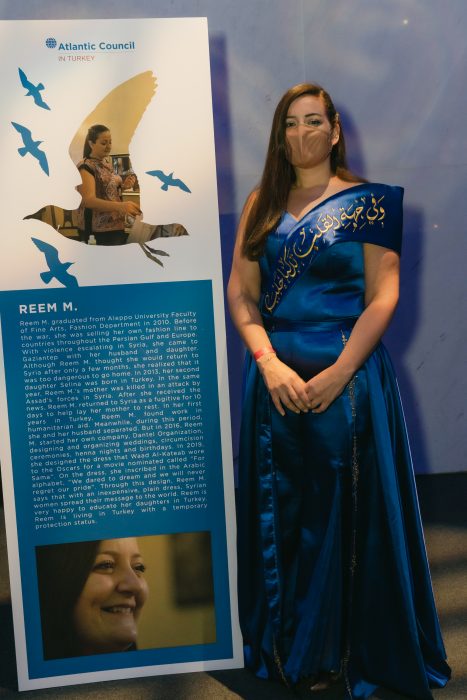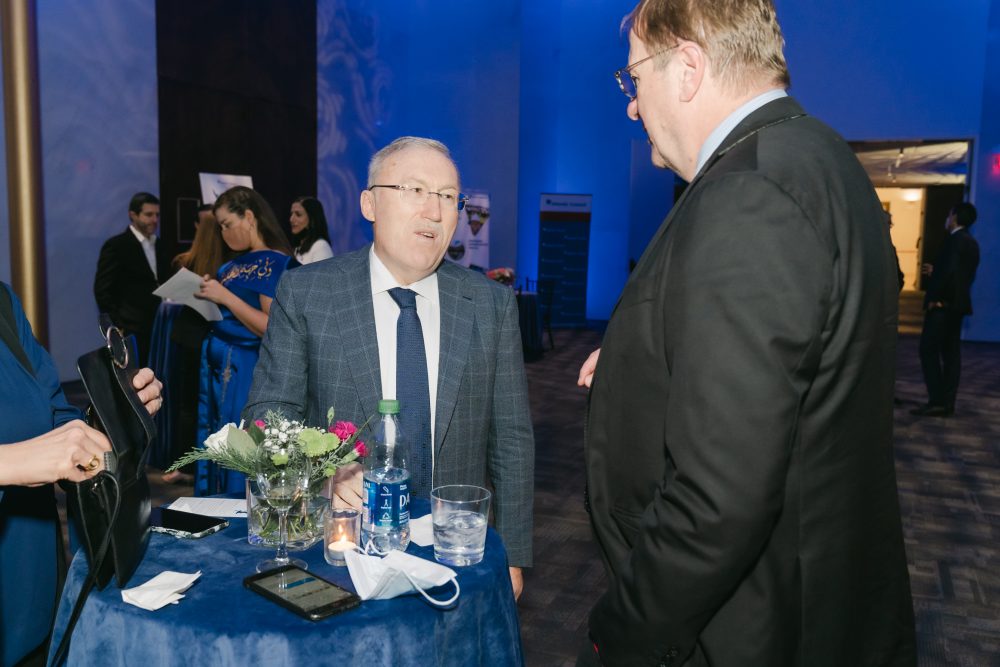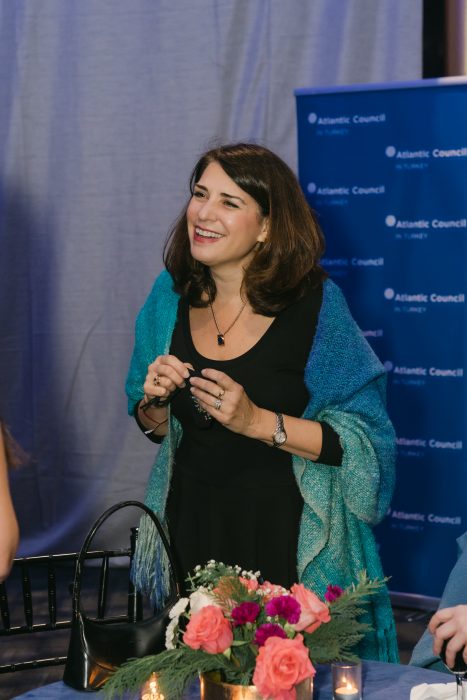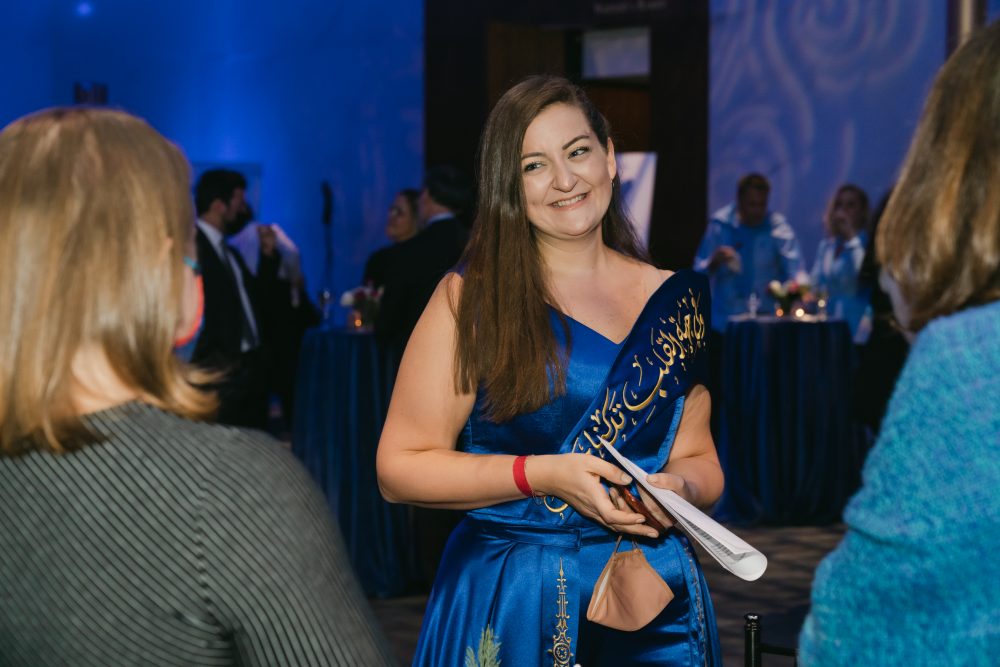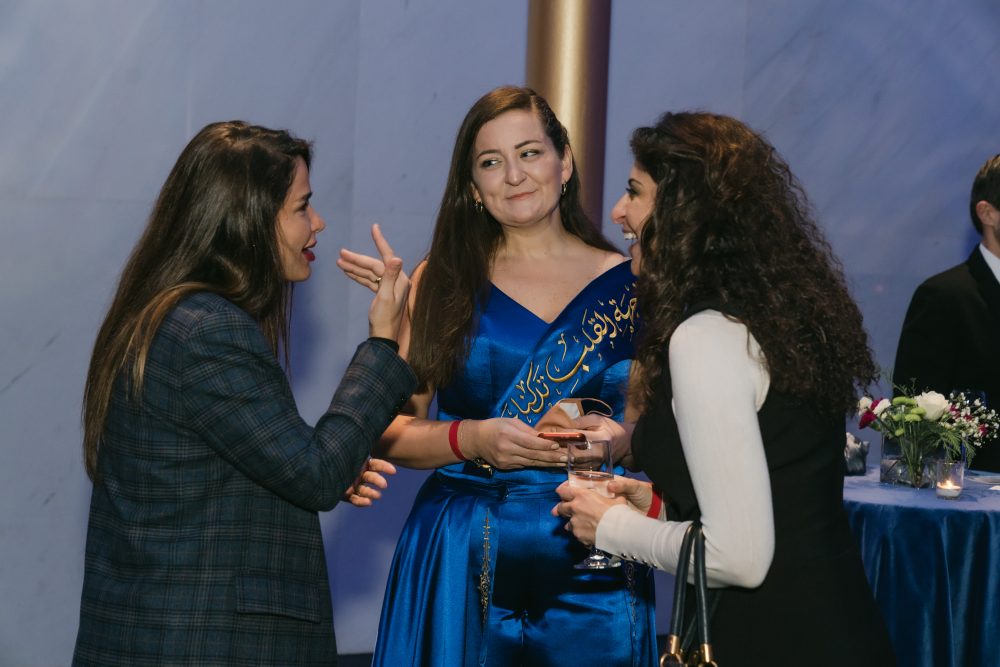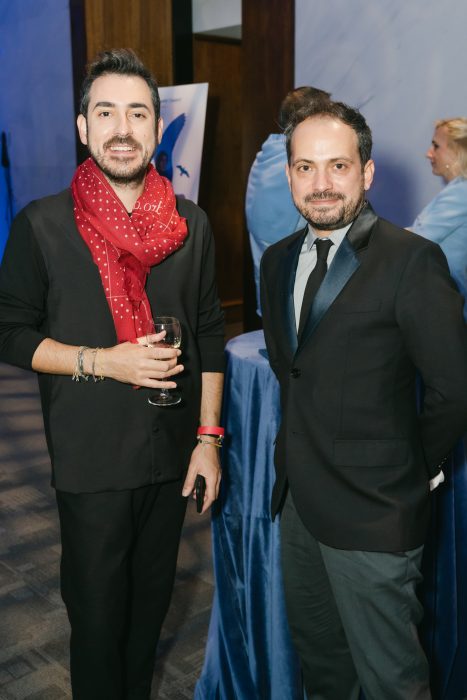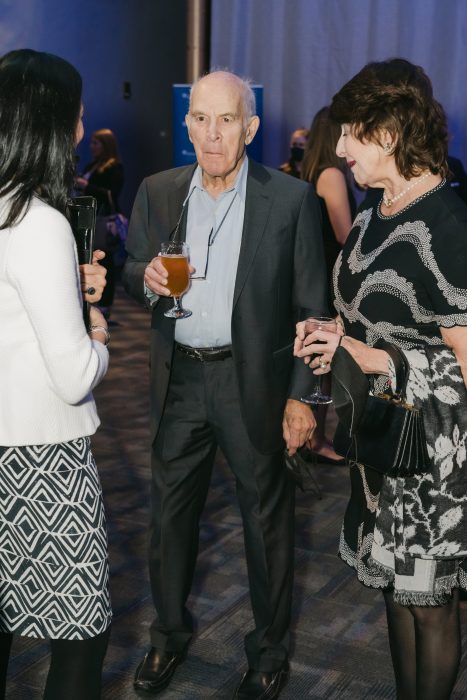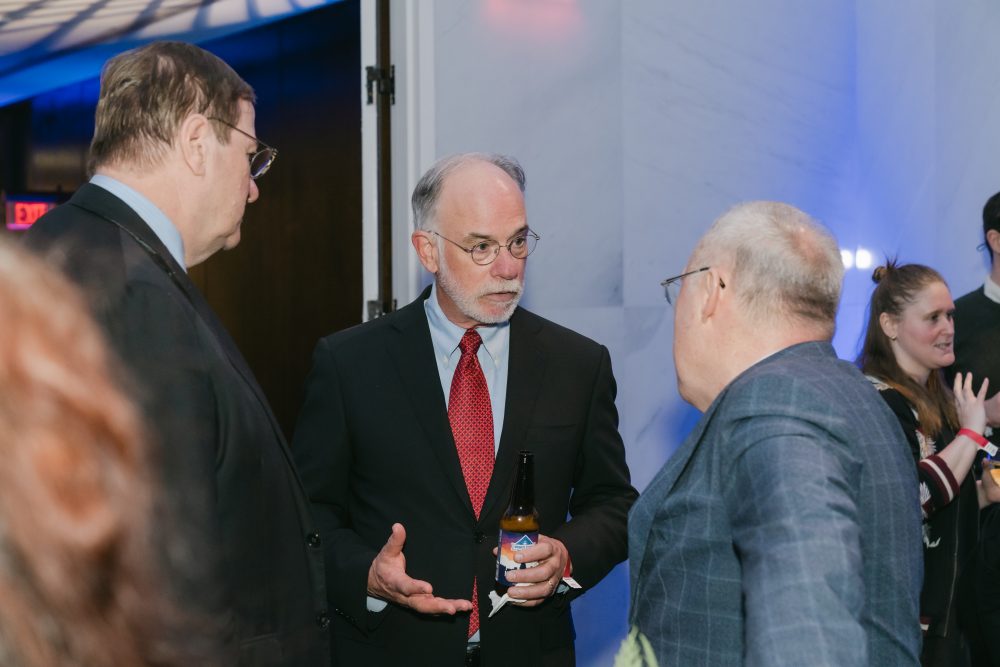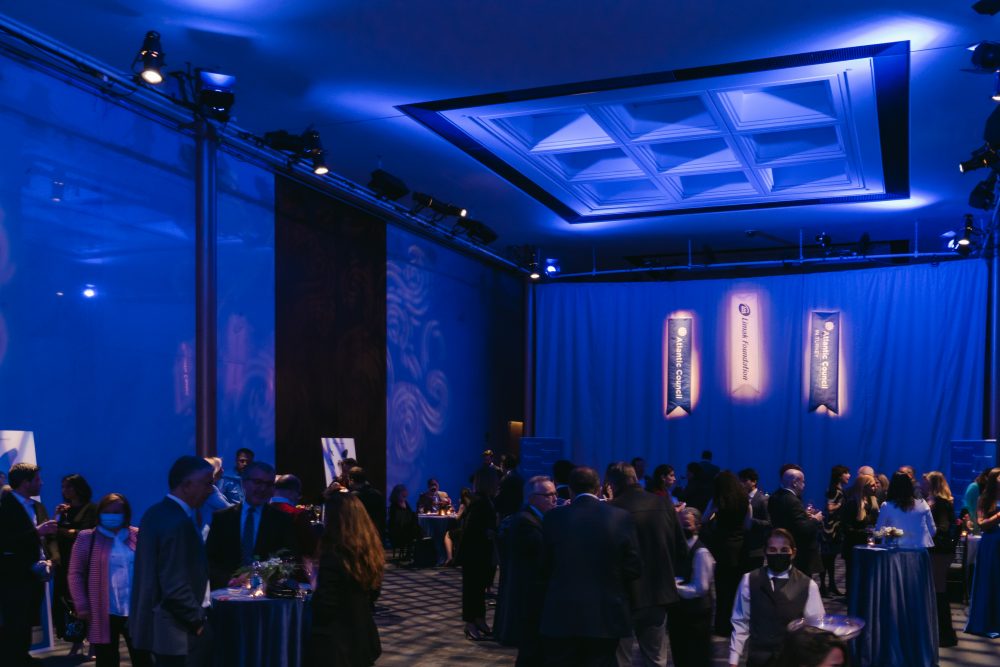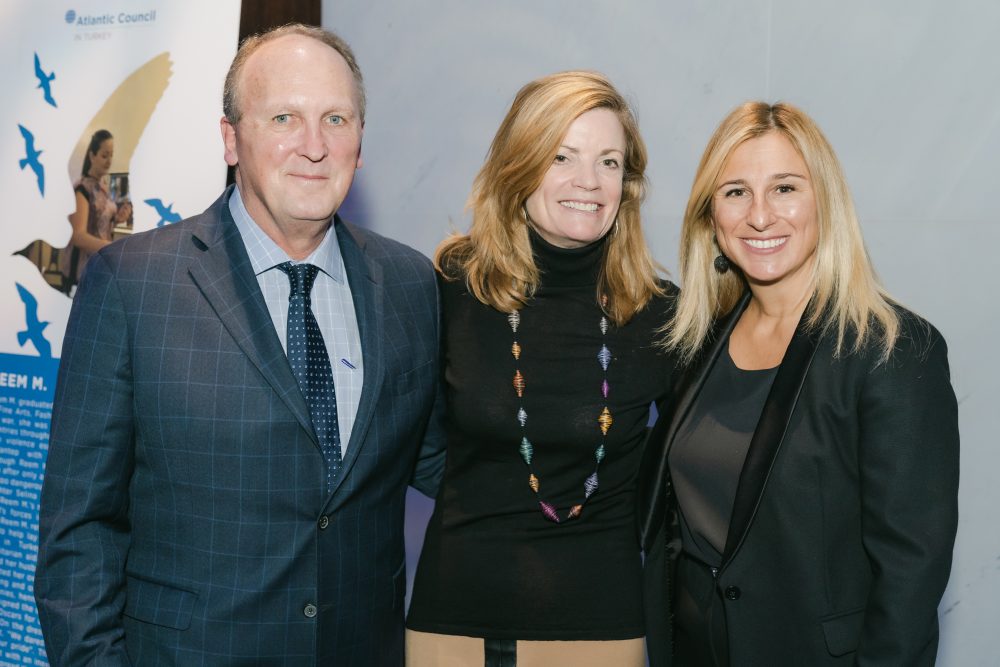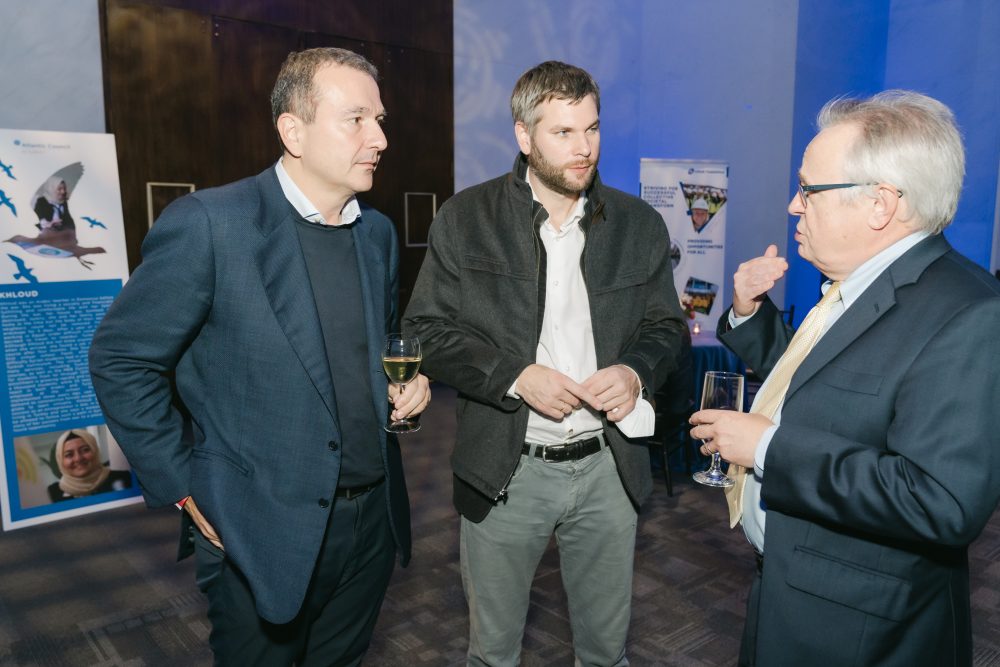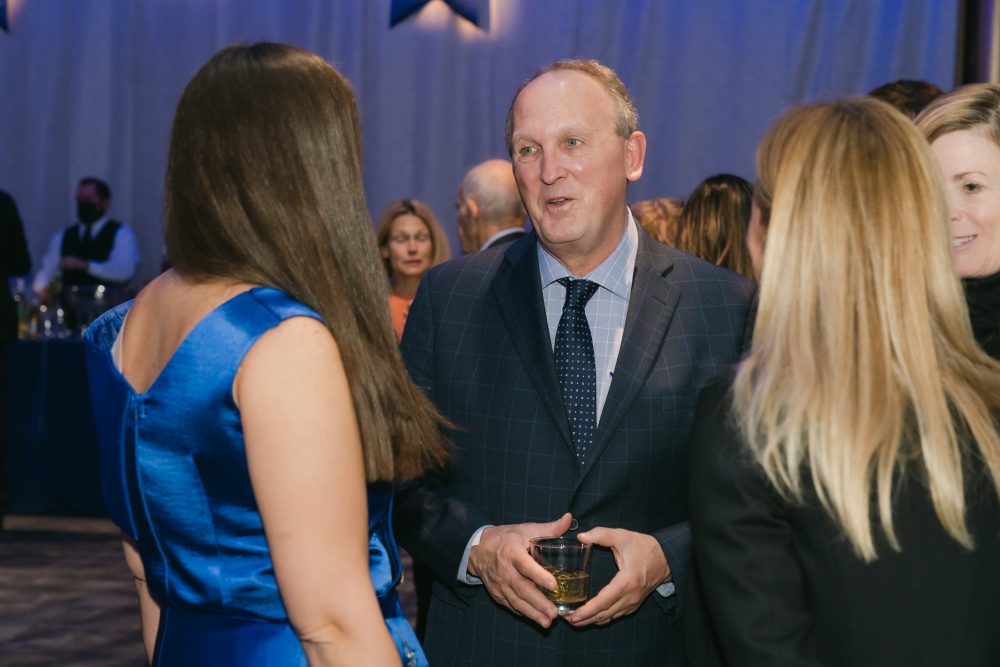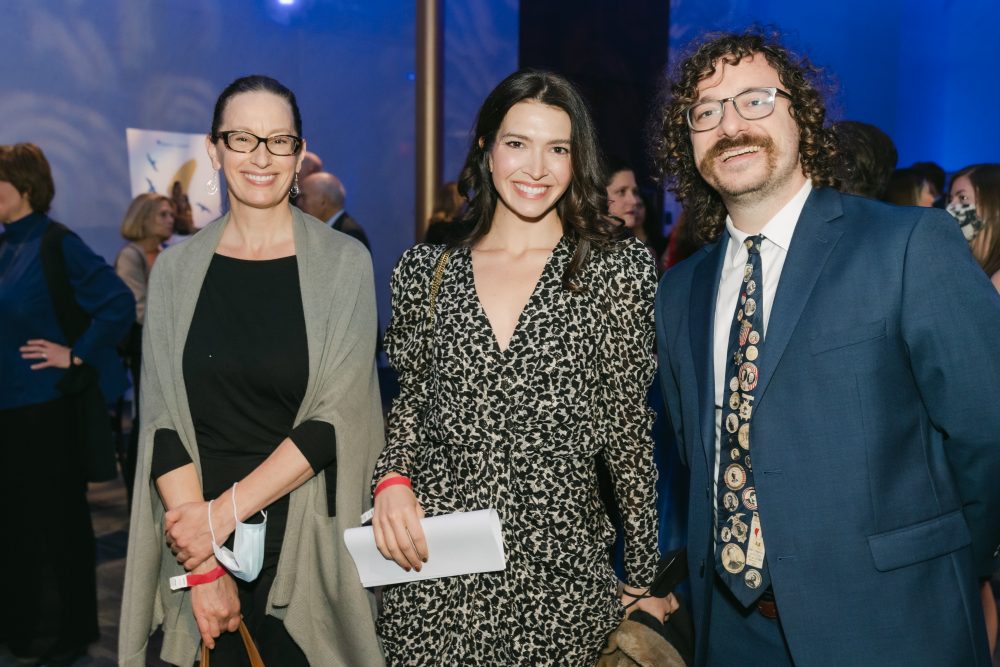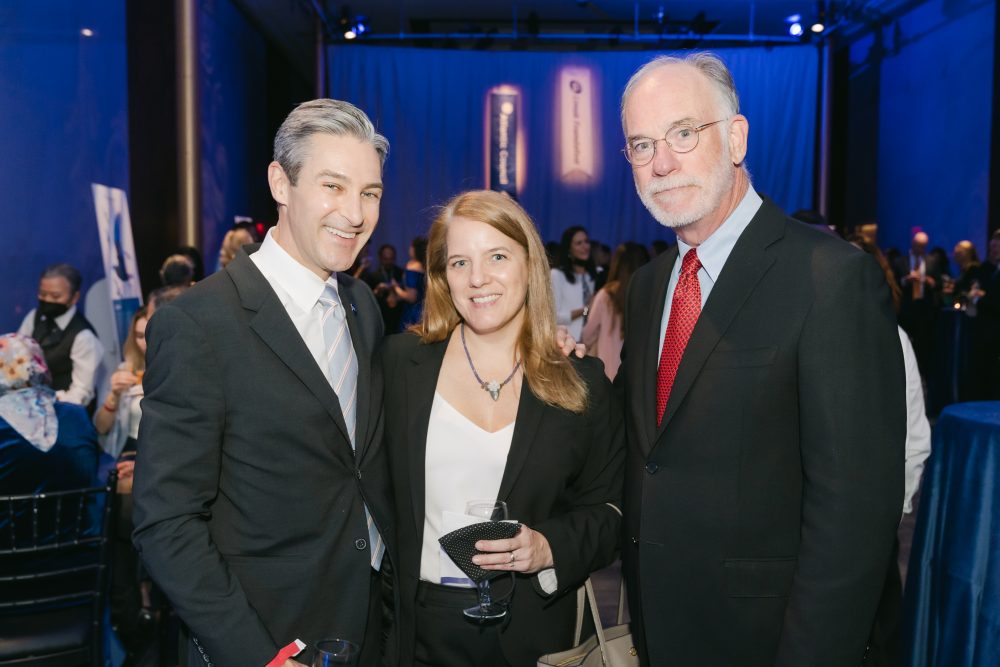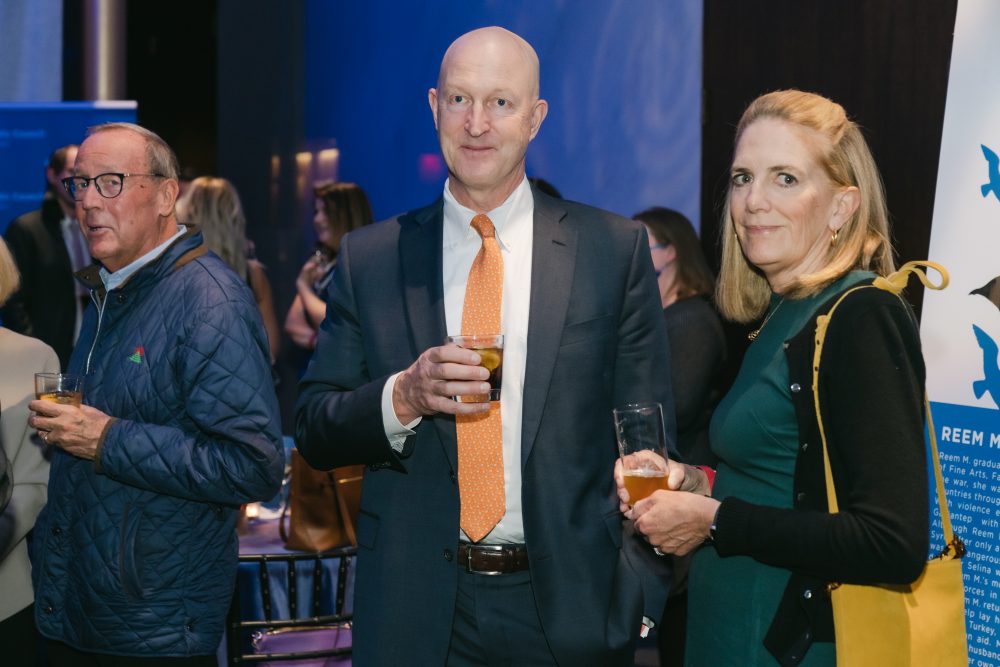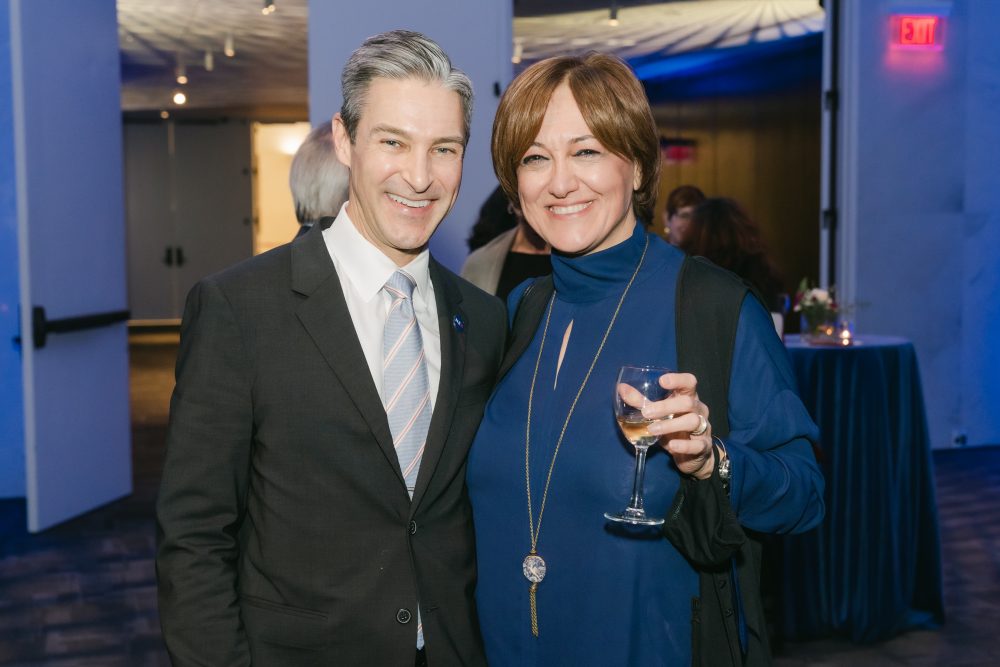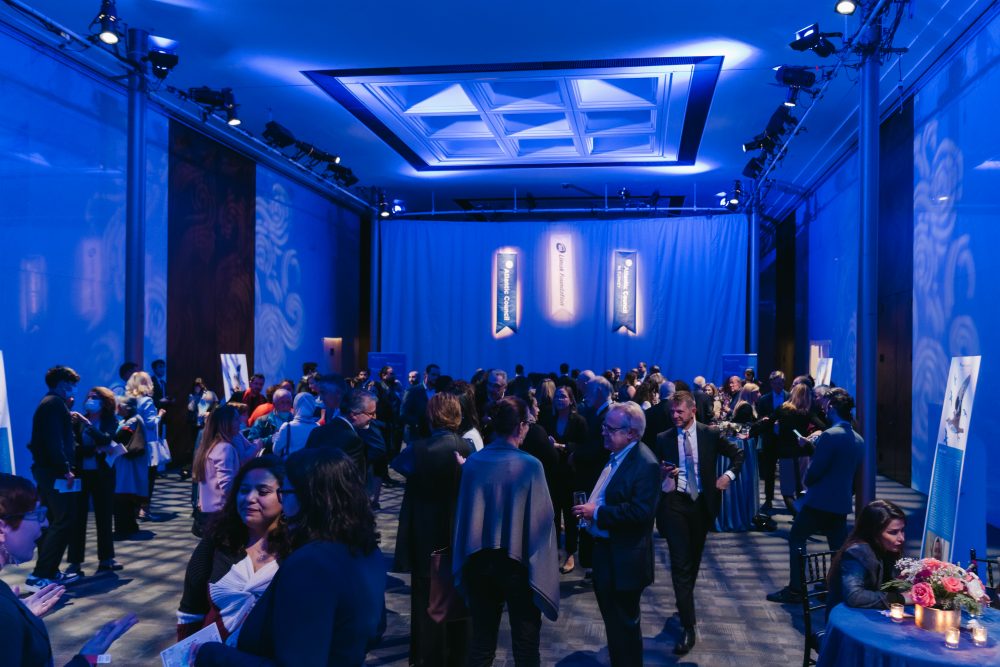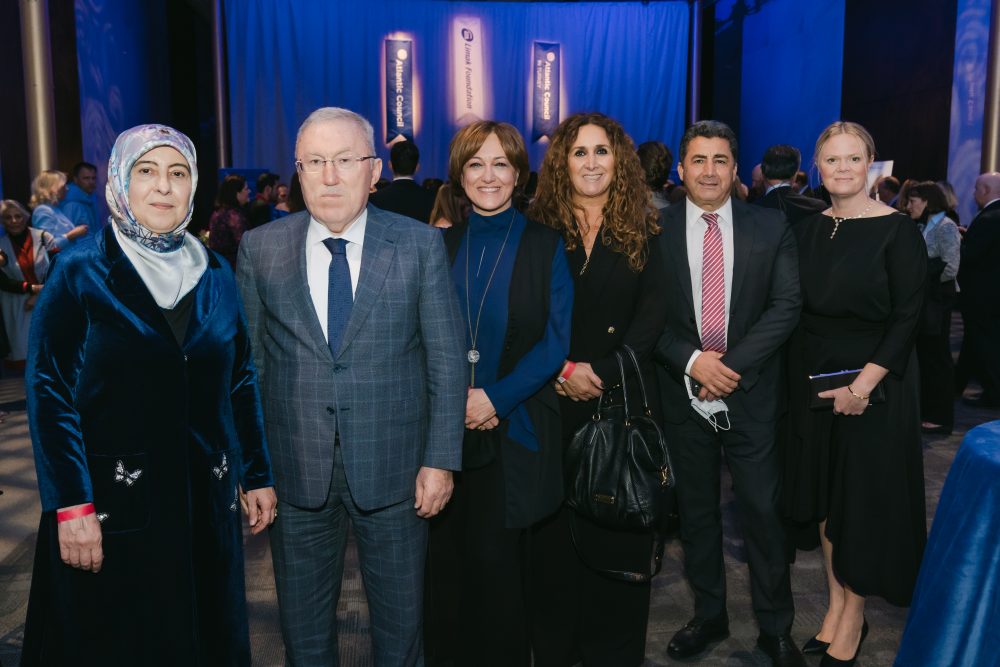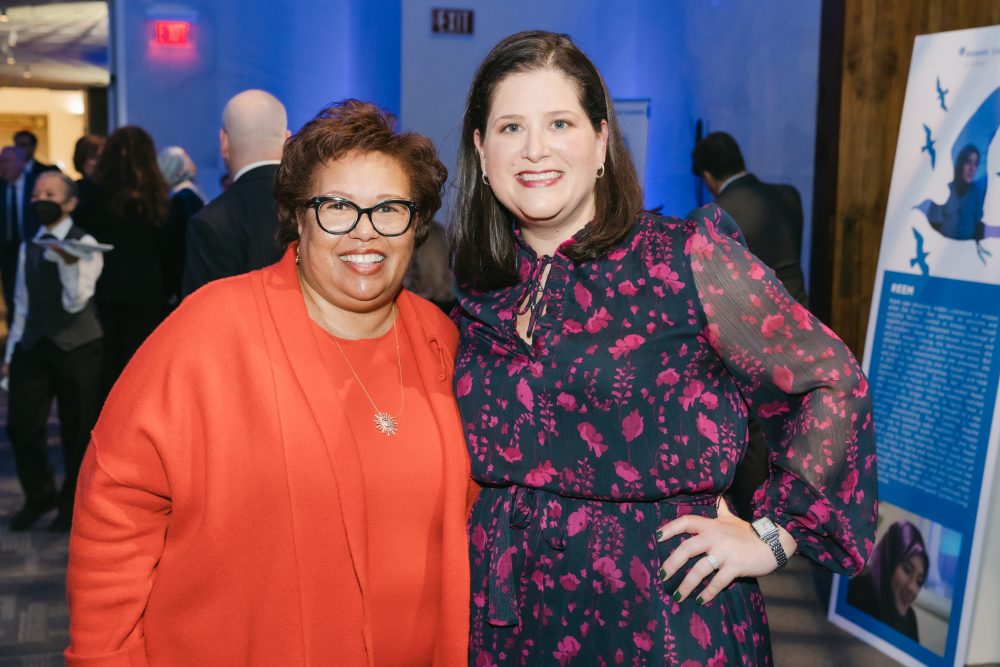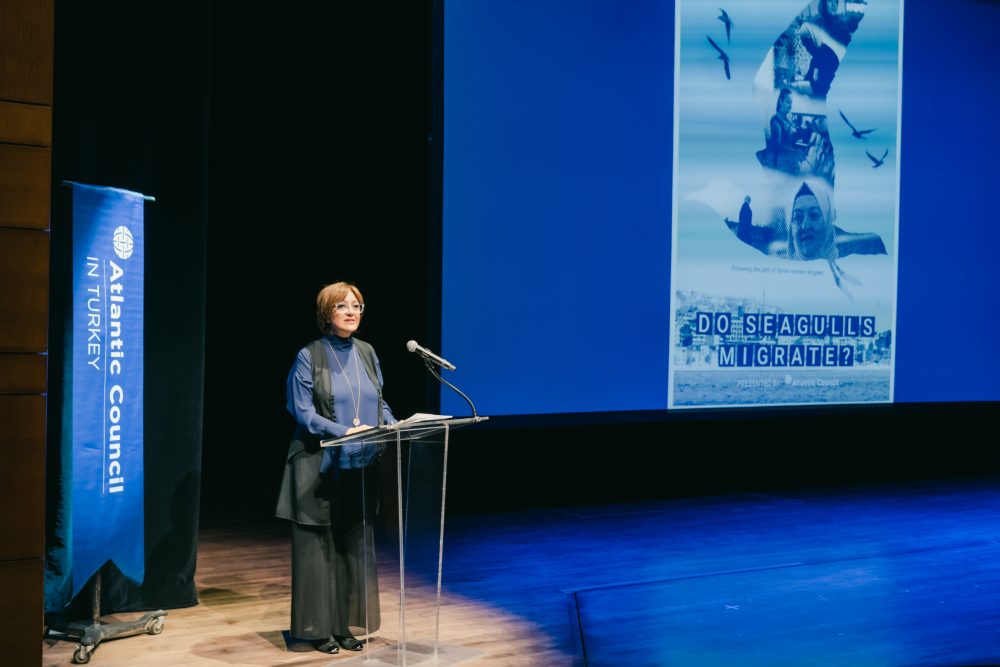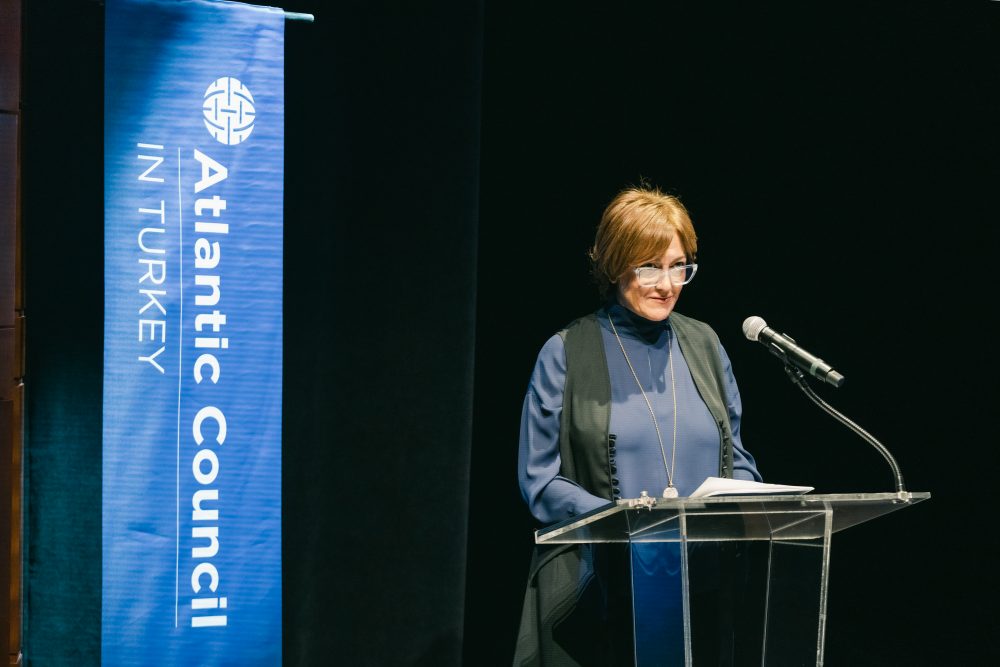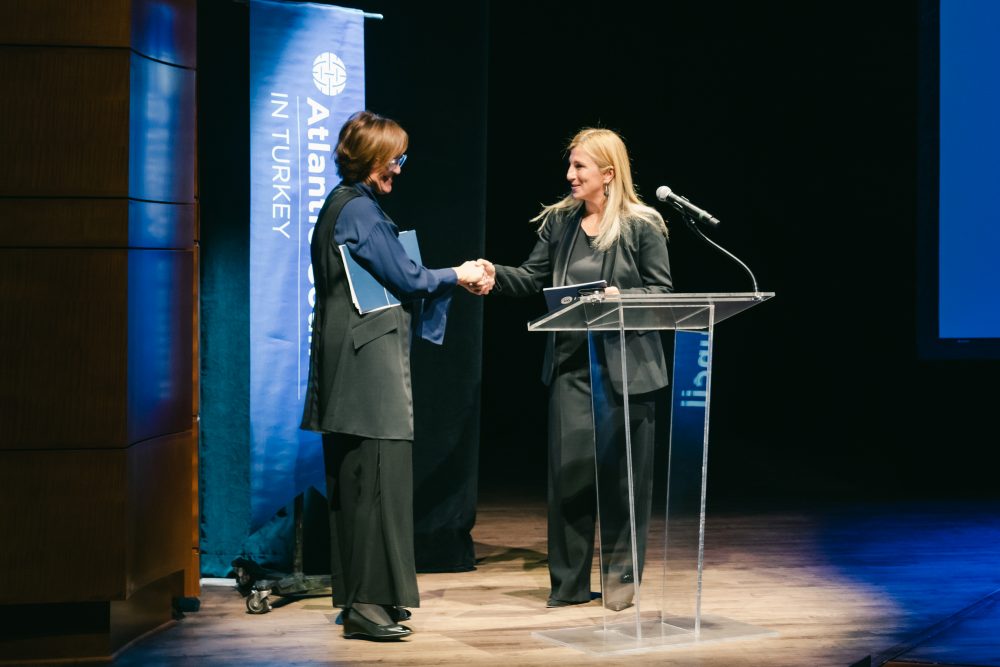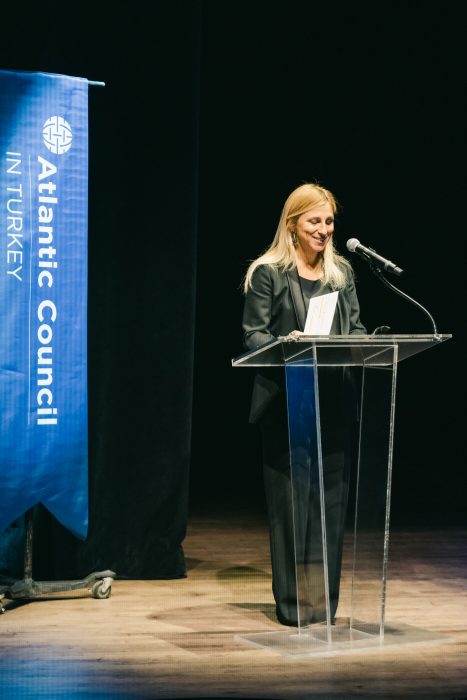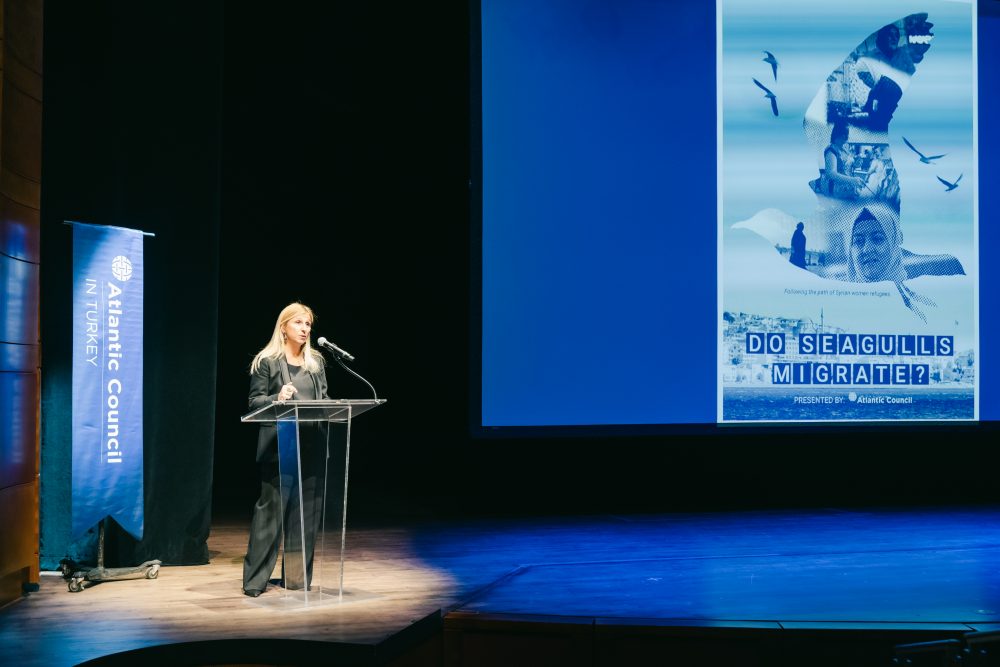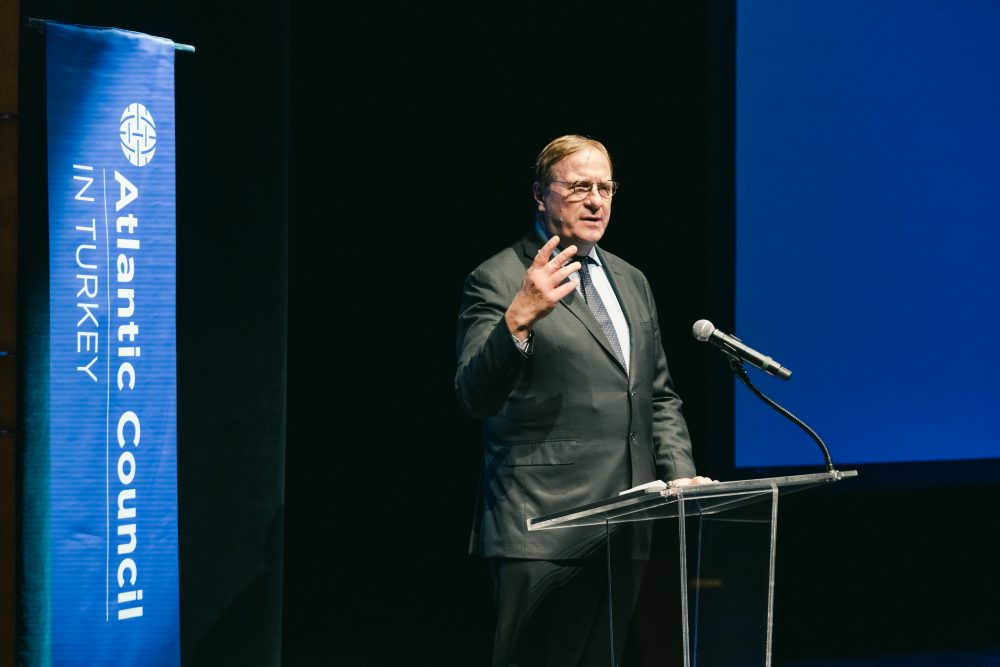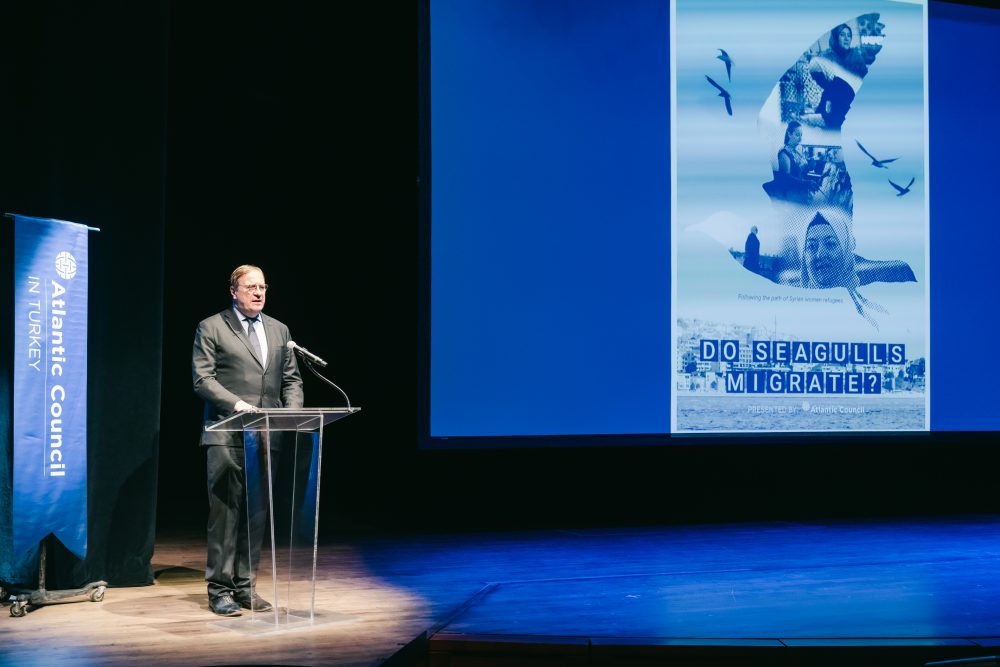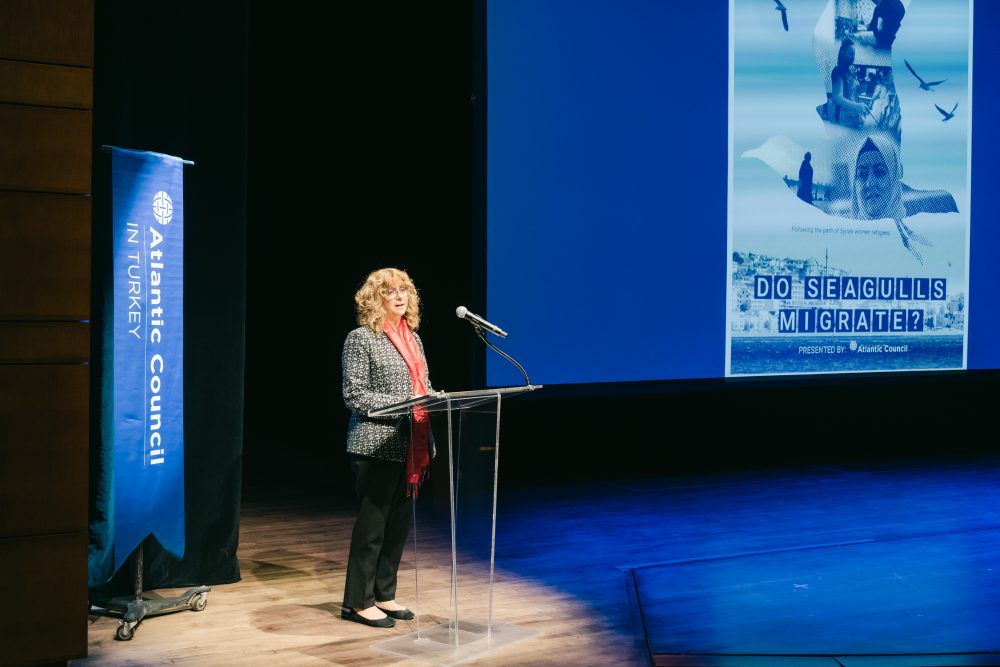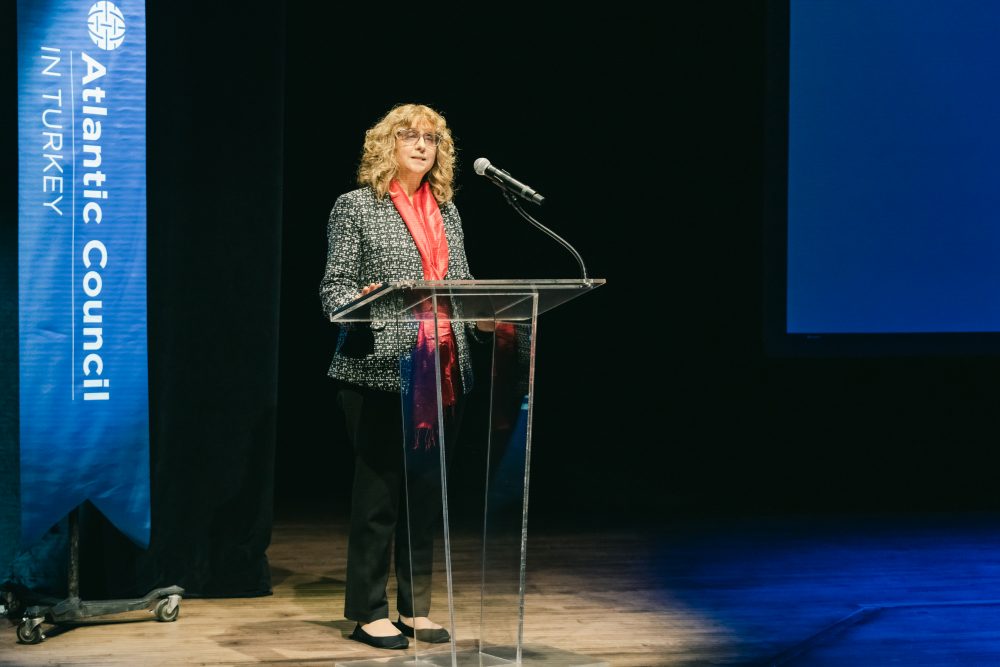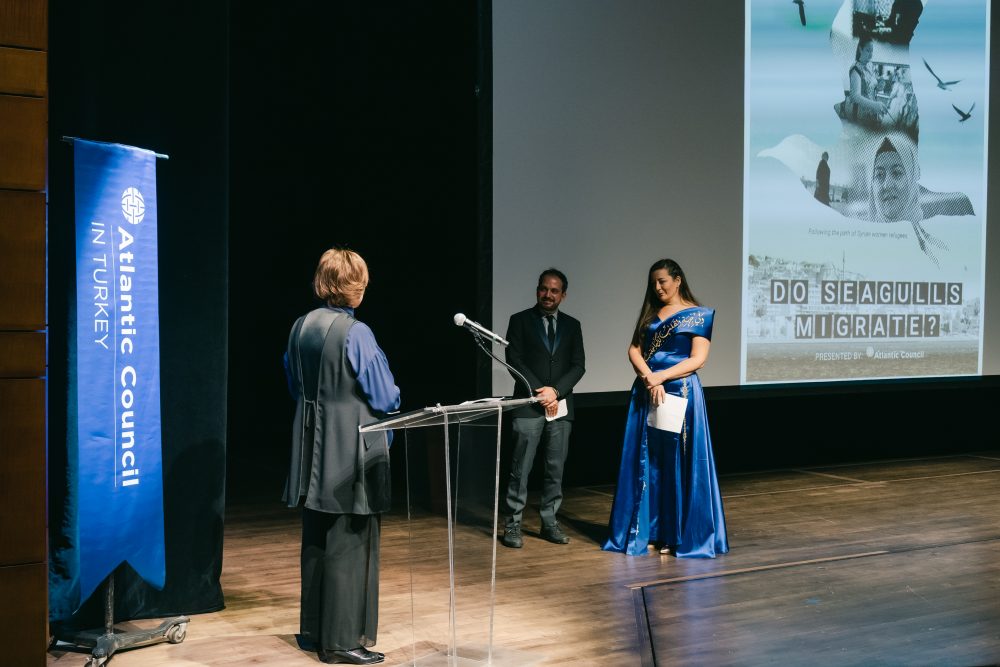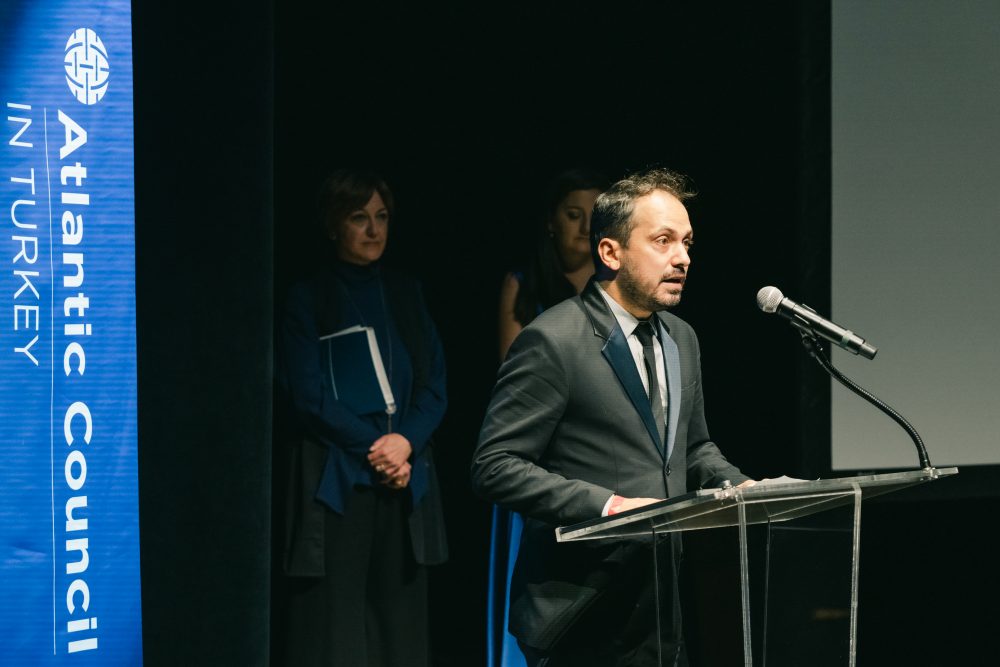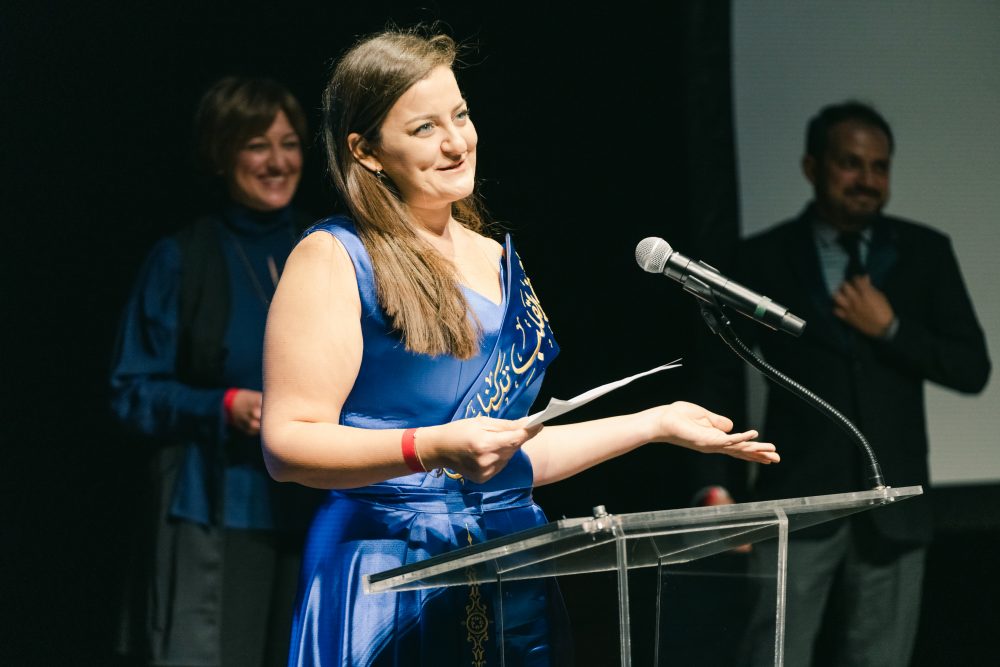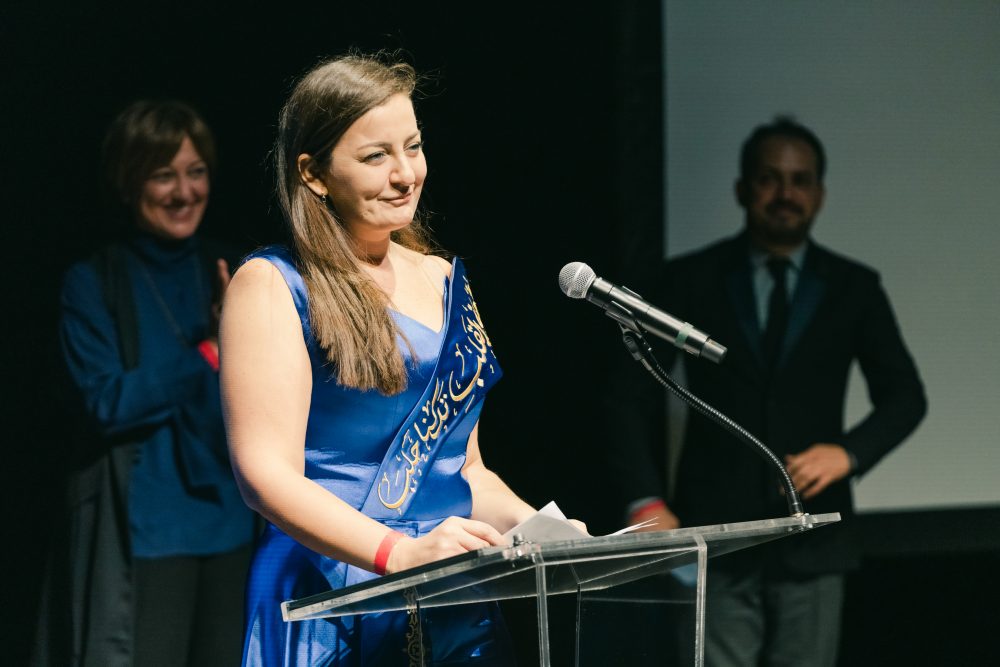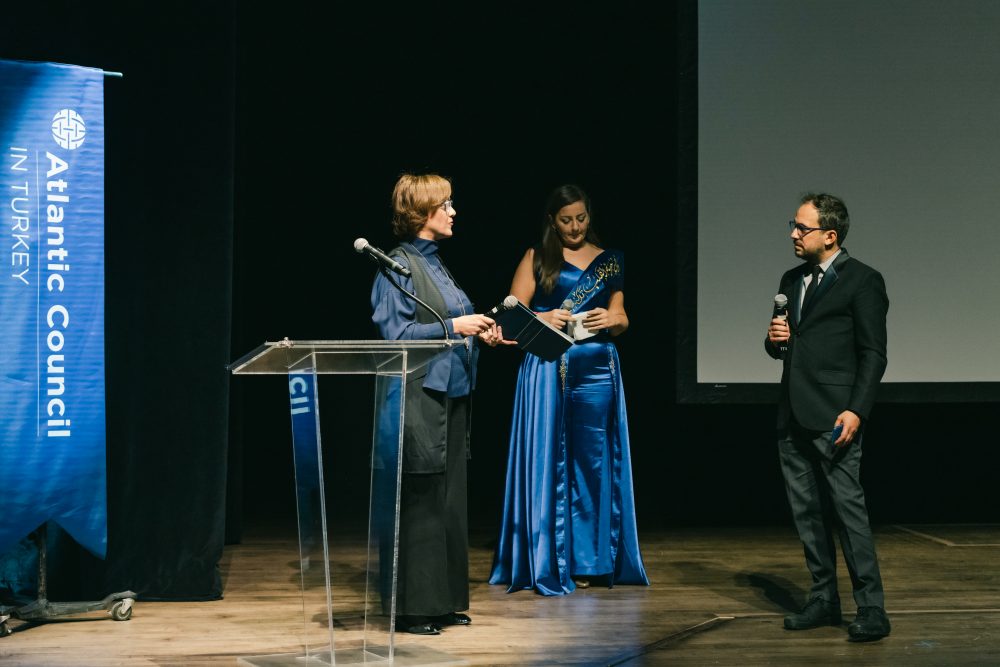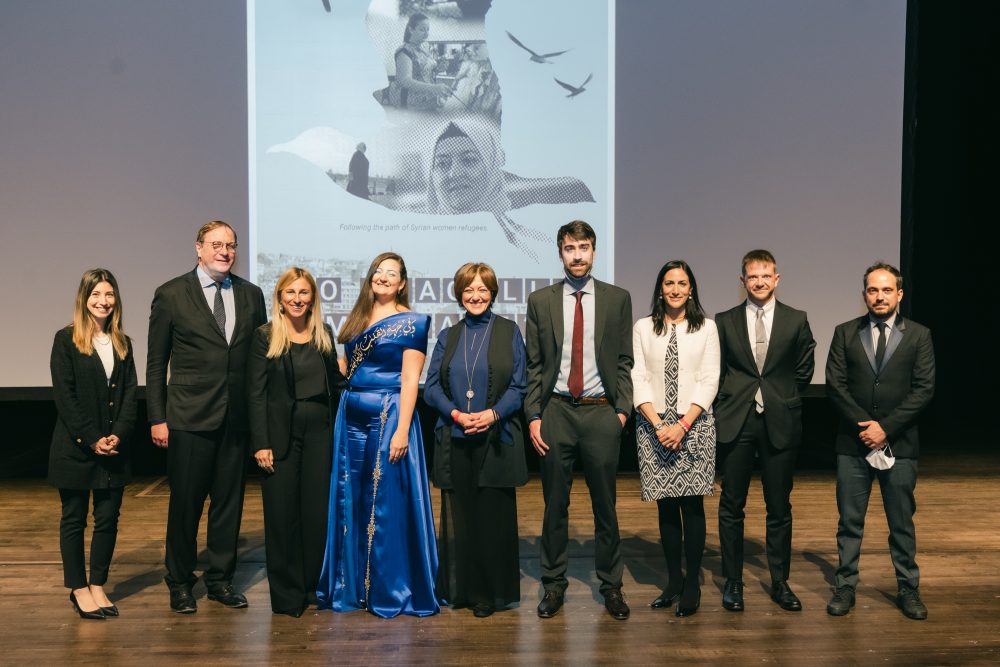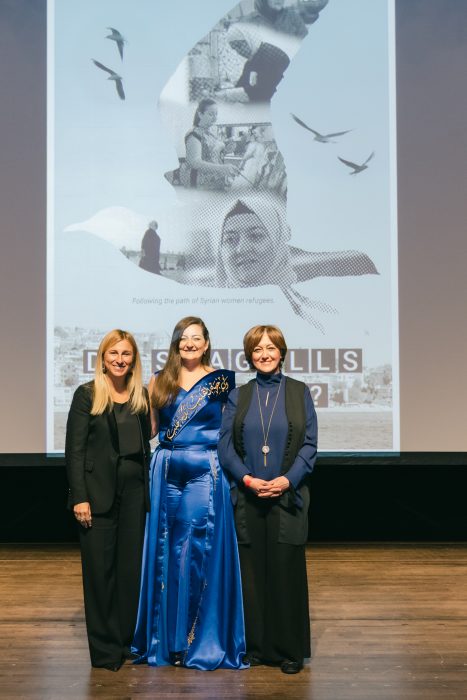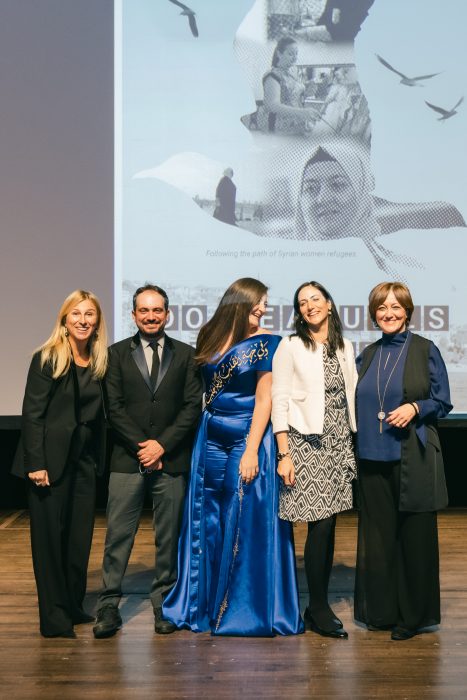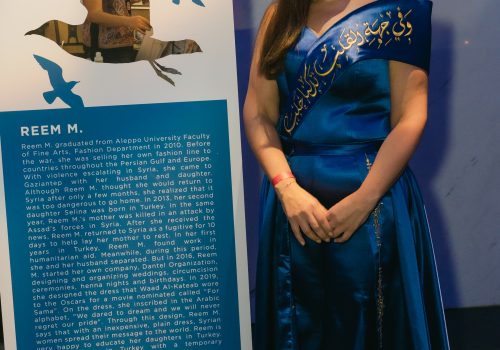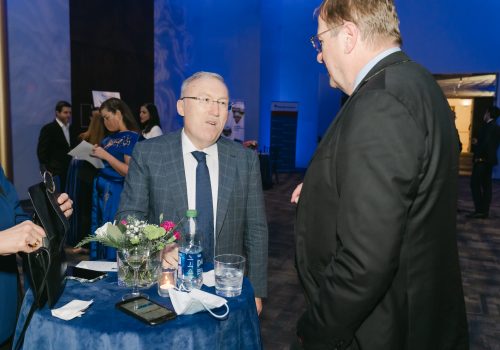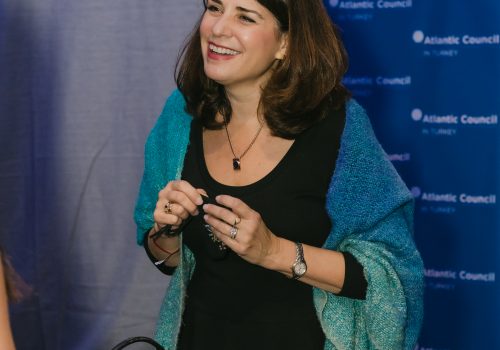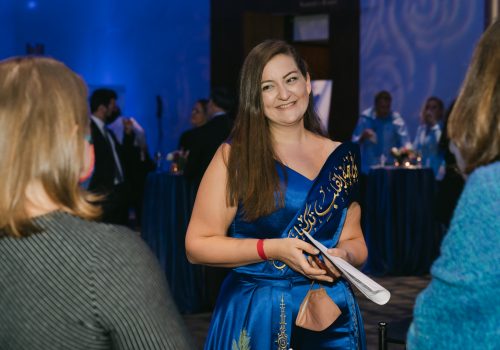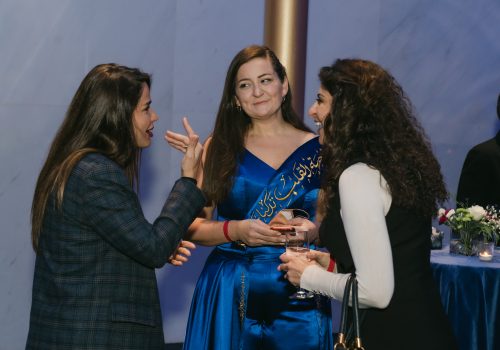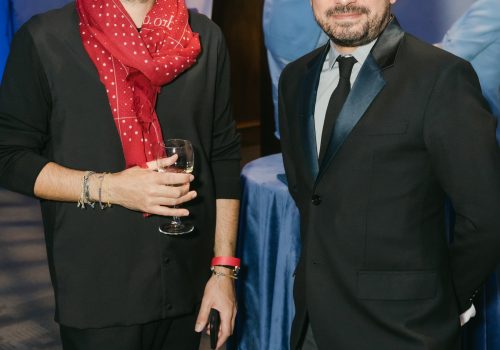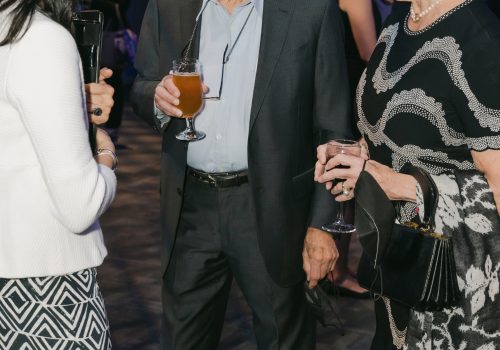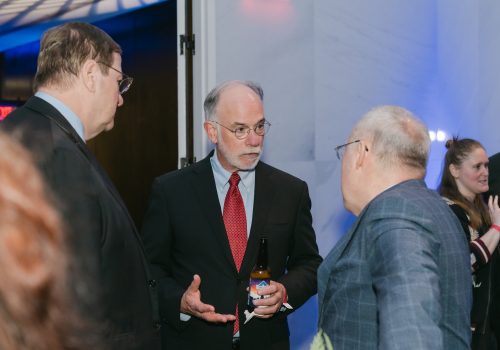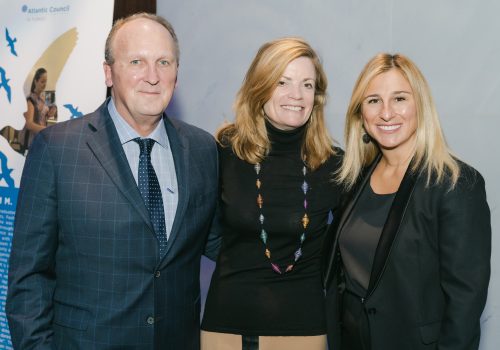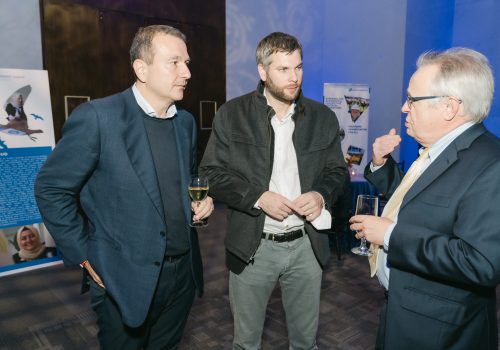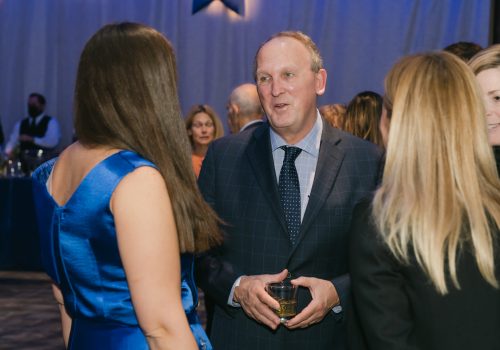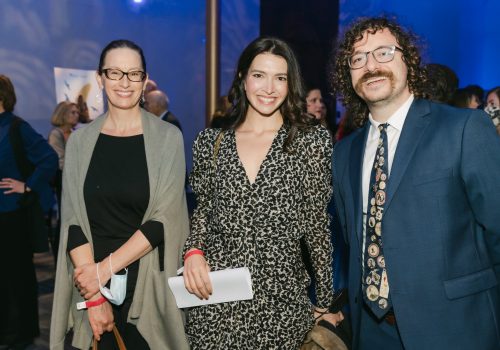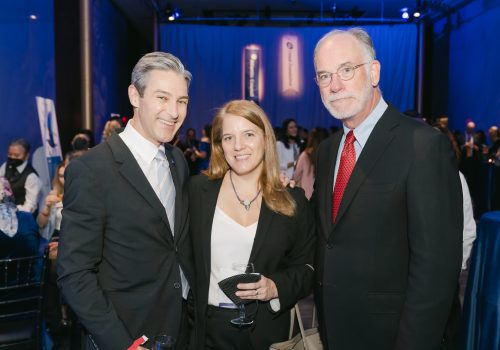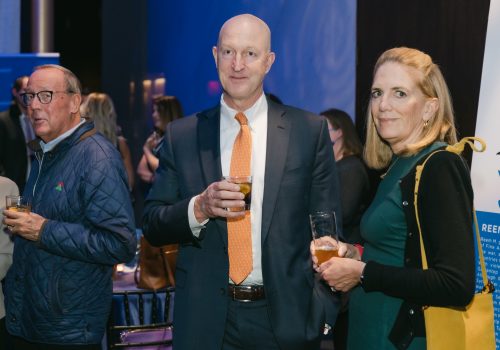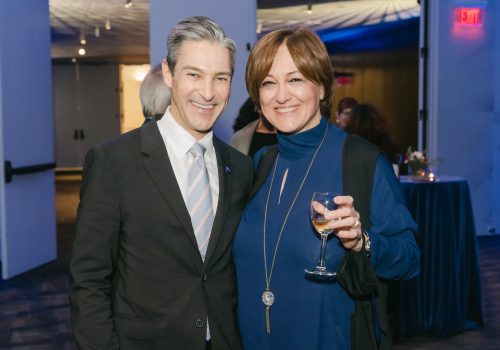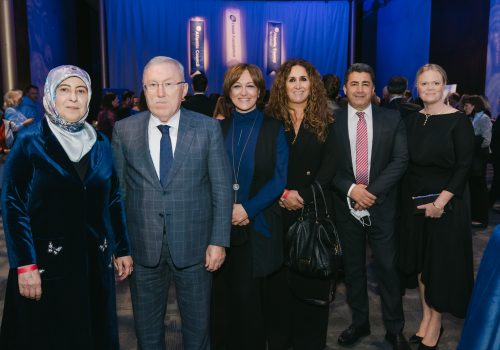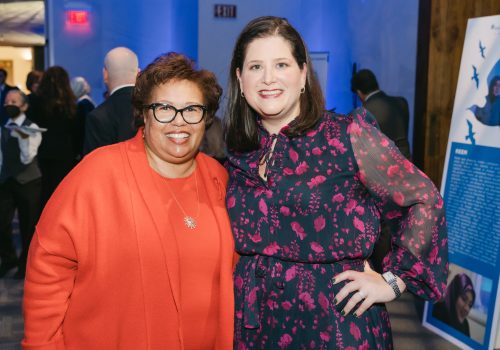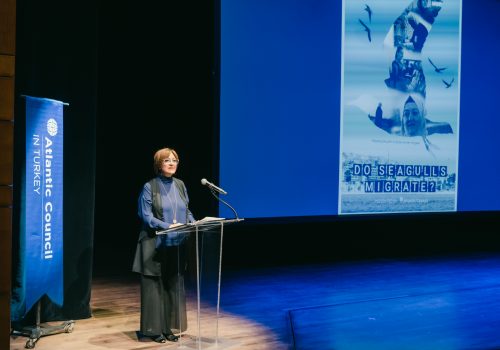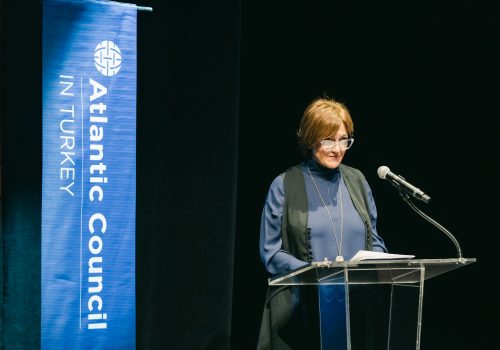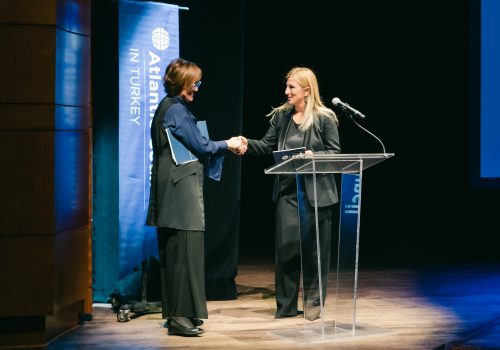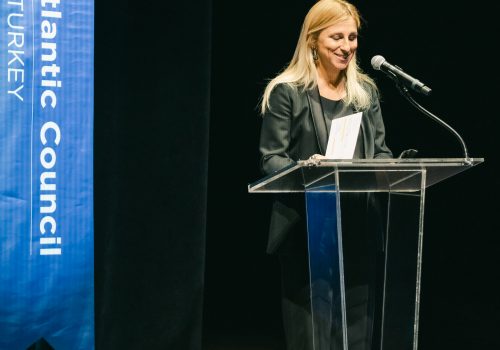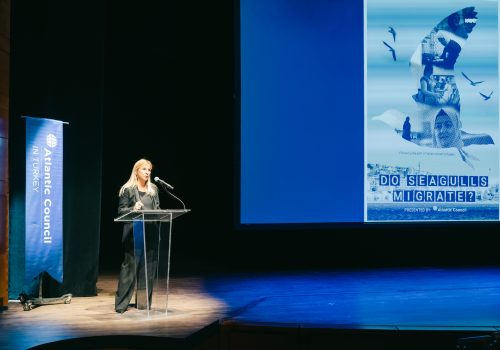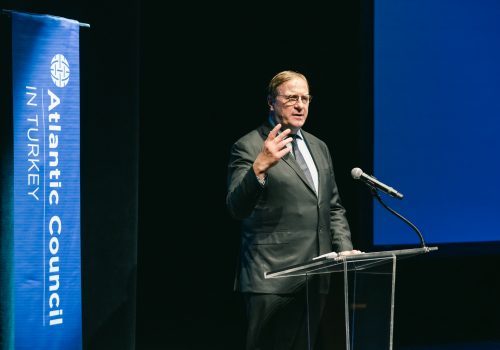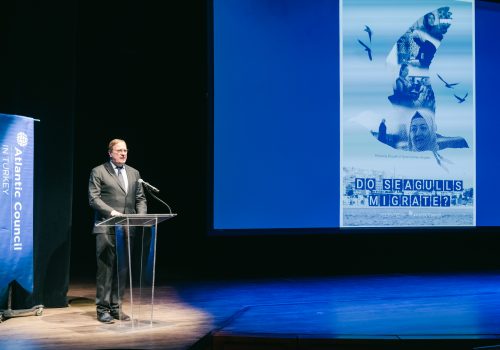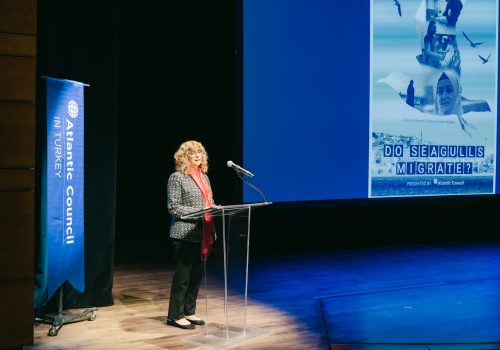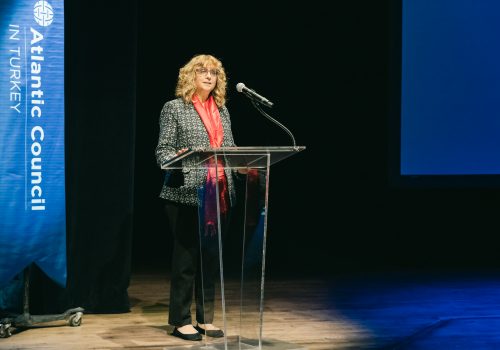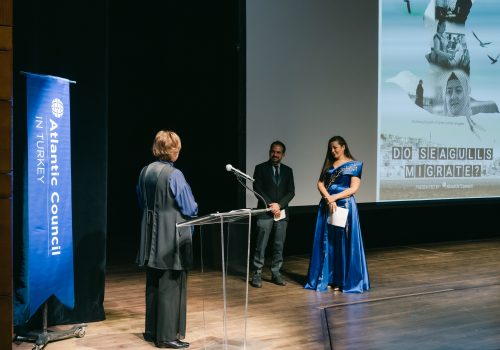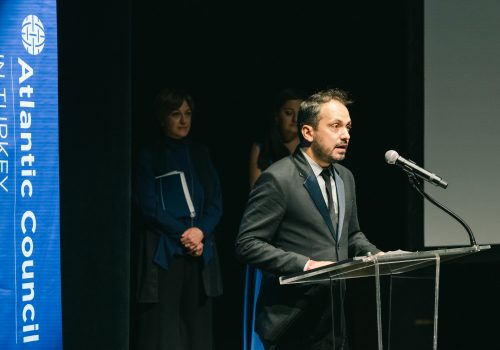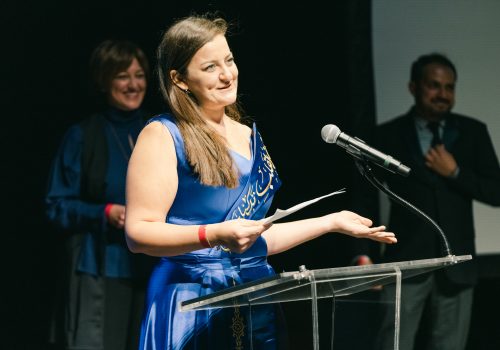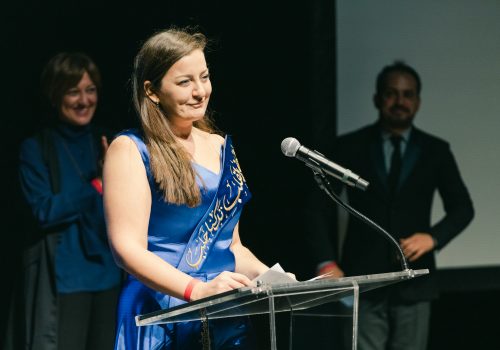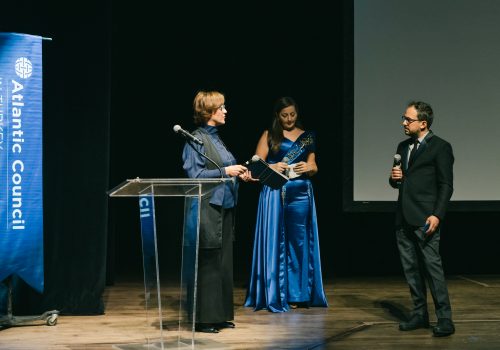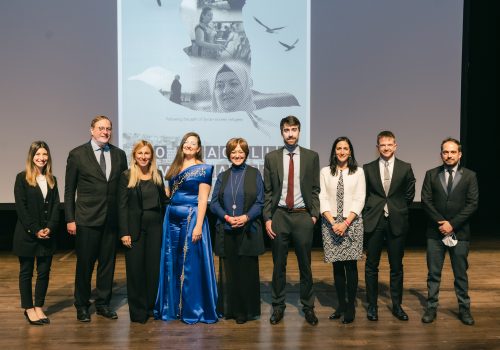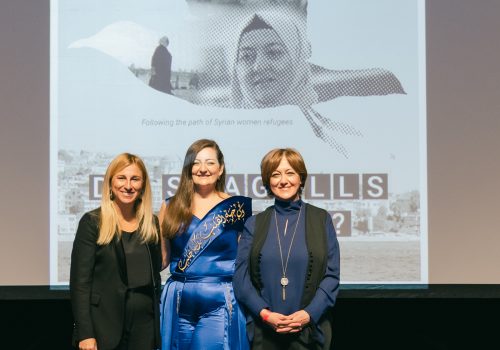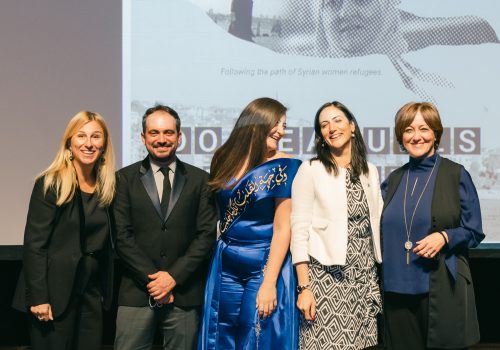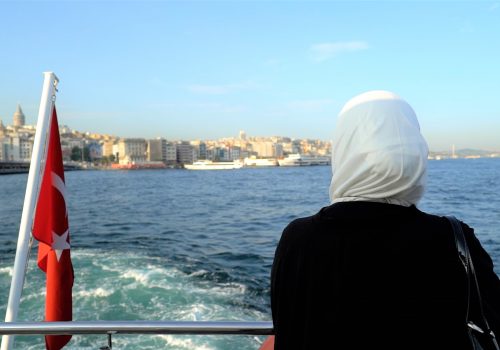Premiere recap
On November 8, the Atlantic Council IN TURKEY organized the premiere of the Atlantic Council’s first ever documentary film Do Seagulls Migrate? at the Kennedy Center in Washington DC.
The premiere featured a lineup of distinguished speakers composed of Limak Investments Chairperson and Atlantic Council International Advisory Board Member Ebru Özdemir; President and CEO of the Atlantic Council Frederick Kempe; and Senior Bureau Official at the Bureau of Population, Refugees and Migration in the US Department of State Nancy Izzo Jackson. Atlantic Council IN TURKEY Director Defne Sadıklar Arslan delivered welcoming remarks. Following the screening, the documentary director Cantekin Cantez and Syrian fashion designer and documentary subject Reem Masri spoke to the audience and answered questions.
The premiere of Do Seagulls Migrate?, which convened officials and civil society actors from the United States and Turkey, took place over ten years since the beginning of the Syrian Civil War, which has caused the displacement of millions of Syrians. Turkey, home to the world’s largest refugee population and host of 3.6 million Syrians, embodies the stories of self-reliant and entrepreneurial women refugees who have been trying to build their lives from scratch in new environs. Capturing this, Do Seagulls Migrate? portrays the stories of four refugee women who fled their war-torn homes to seek a new life in Turkey. Characterized by their perseverance, the four stories are alike in the sense that Inam, Reem M., Khloud and Reem seized opportunities to advance their lives and new communities. Inam, through engaging in a social development NGO, began a catering service. Reem M. started her own fashion and event planning organization company and designed the dress that Syrian director Waad Al-Kateab wore to the Oscars. Khloud founded Turkey’s first online school, Fasih, after observing the difficulty Syrian students had in understanding the Turkish curriculum. Reem, as a journalist without borders, started a radio station broadcasting in Gaziantep that continues to be the voice of immigrant Syrians.
The documentary launch is very timely in the context of rising anti-migrant populist rhetoric, to which Turkey is not an exception. Intermingled with the concepts of development, geopolitics and climate at the national, regional and international levels, global migration has been subject to populist arguments. Do Seagulls Migrate? questions these arguments by bringing to life the resilience of the documentary subjects and their contribution to the societies, as well as the economies, where they found refuge.
At the premiere, Nancy Izzo Jackson emphasized that conditions for the more than 13 million displaced Syrians have deteriorated in the face of the COVID-19 pandemic and drew attention to how socio-economic pressures and displacement impedes girls’ access to education, bringing about poverty and disadvantage. Following this overview, she explained how the US Government is supporting partner organizations in refugee hosting countries to provide resources to women with an aim to create jobs for refugees and host communities alike. Stating that the United States remains committed to supporting both the Syrian people and the countries hosting them, the Senior Bureau Official underlined that the current conditions in Syria do not allow a largescale refugee return, which is an optimal solution to any refugee crisis.
Defne Sadıklar Arslan, having provided an overview of the decade-long Syrian war and its devastating effects, described Do Seagulls Migrate? as the stories of achievement despite unimaginable adversity. Underlining that the four women’s stories are ones we don’t hear every day, Ms. Arslan pointed out that there are millions of stories that will be left untold and unheard. Alluding to the film’s title, she noted that seagulls do not migrate unless they have to and that the refugees, while forced by conditions in Syria to migrate, ended up with great achievements in their hosting communities.
Ebru Özdemir, who inspired the idea behind Do Seagulls Migrate?, emphasized the resilience and perseverance of the four documentary subjects. Underscoring that their stories should be inspiring for all people facing challenges in their lives, she recalled the need to help them tell their story in order to emulate their courage and perseverance. Beyond helping them attain humanitarian necessities, Ms. Özdemir stressed the need for longer-term solutions to prevent recurring situations of forced migration and highlighted the importance of helping people develop in order to tap their human capital. Only in that way, she argued, can these people be enabled to explore their wealth of talents and gifts.
Frederick Kempe put the documentary launch in the context of the Atlantic Council’s 60th anniversary. Do Seagulls Migrate?, he remarked, is the latest example of the Atlantic Council bringing the issues it works on to life in ways that are not typical for the think tank sector. Mr. Kempe underlined that the US is the world’s largest donor to the Syria crisis with nearly $13.5 billion provided in humanitarian assistance since the start of the conflict for Syrians both in Syria and in neighboring countries.
One of the documentary subjects, fashion designer Reem Masri, pointed out the two discriminations that they are simultaneously facing: first as a refugee and then as a woman. Sitting at the intersection of these two as a migrant woman, Ms. Masri emphasized that her story transcended boundaries and represents the story of all Syrian women that have been struggling to provide for themselves and their families. She said that apart from the stories shared in Do Seagulls Migrate?, there are many more names and stories of Syrian women working hard around the world. Ms. Masri also agreed that the situation in Syria continues to prevent the option of refugee return.
In his speech, the director of the documentary, Cantekin Cantez, paralleled the stories of the four women to a phoenix that is reborn from its ashes. Stating that they dared to destroy the widespread negative connotations of refugees in the society, the subjects of Do Seagulls Migrate? displayed the success of building their lives from scratch in their host communities, in an unknown territory for them.
Through depicting the achievement and resilience of four women and their significant societal and economic contributions to the places they live, the documentary presents a radically different side of the migration issue in contrast to populist narratives. The speakers were on the same page in emphasizing the empowering environment provided to migrants. Seagulls migrate only when they have to, but these seagulls did migrate to communities full of opportunity and exemplify resilience and overcoming adversity.
-Recap written by Atlantic Council IN TURKEY Young Global Professional Selin Batitürk
About Do Seagulls Migrate?
Trailer

The Atlantic Council in Turkey aims to promote and strengthen transatlantic engagement with the region by providing a high-level forum and pursuing programming to address the most important issues on energy, economics, security, and defense.
